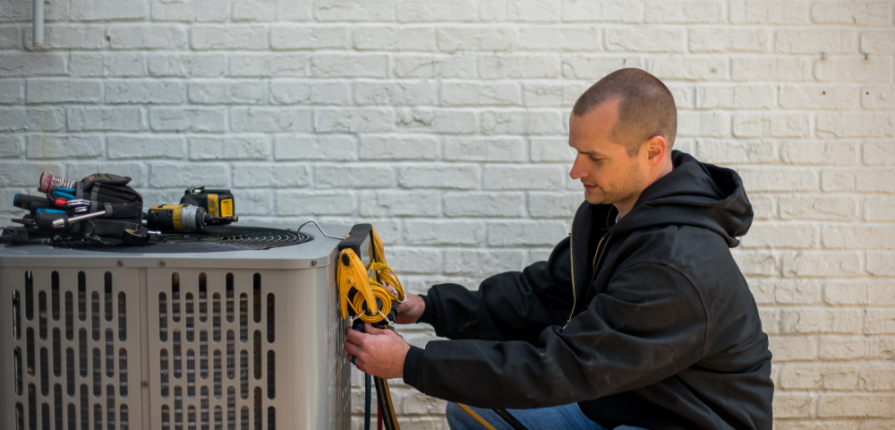Top HVAC Maintenance Tasks You Shouldn’t Skip Before Winter
As the cooler months approach, ensuring your HVAC system is in top shape is essential for both comfort and efficiency. While regular maintenance might seem like an unnecessary chore, skipping critical HVAC tasks can lead to unexpected breakdowns, reduced system efficiency, and higher energy bills during the winter months. To keep your home cozy and your HVAC system functioning optimally, here are the top maintenance tasks you should never skip before winter arrives.
1. Thermostat Calibration
A properly calibrated thermostat is key to maintaining consistent indoor temperatures and avoiding unnecessary energy consumption. Over time, thermostats can become misaligned, causing your HVAC system to either overwork or underperform. This can lead to inefficient heating, cold spots in your home, and increased energy bills. Before winter, have your thermostat professionally checked and recalibrated if necessary. For even greater control, consider upgrading to a smart thermostat that can optimize temperature settings automatically and help reduce energy waste.
2. Check Refrigerant Levels
Although refrigerant is often associated with the cooling function of an HVAC system, it plays a critical role in heating as well, particularly in heat pump systems. Low refrigerant levels can cause the system to work harder than it should, reducing both heating efficiency and comfort in your home. During your pre-winter maintenance, make sure a professional checks your refrigerant levels and addresses any leaks or shortages. This will help your system maintain the proper balance between heating and cooling modes throughout the winter.
3. Inspect Heat Exchangers
The heat exchanger is one of the most critical components of your HVAC system, especially during the heating season. It’s responsible for transferring heat from the furnace to the air circulated throughout your home. Over time, the heat exchanger can develop cracks or other damage, leading to inefficient heating and potentially dangerous carbon monoxide leaks. A professional inspection can identify any issues before they become serious. If there are cracks or other damage, the heat exchanger should be repaired or replaced immediately to ensure safe operation throughout the winter.
4. Replace or Clean Air Filters
Clogged or dirty air filters reduce airflow, making your HVAC system work harder to heat your home. This not only increases energy consumption but can also lead to system strain and eventual breakdowns. Before winter, replace or clean your HVAC air filters to ensure optimal airflow and improve indoor air quality. It’s also a good idea to set a schedule for regular filter checks during the winter months, as the system will be running more frequently.
5. Test Your Furnace’s Ignition System
The ignition system is responsible for lighting the burner in your furnace, which provides the heat needed to warm your home. If the ignition system is faulty, your furnace may not be able to start, leaving you without heat on cold days. During your pre-winter HVAC maintenance, have a technician test the ignition system to ensure it’s working properly. If there are any signs of wear or malfunction, they can repair or replace the ignition system before it causes any disruptions.
6. Inspect and Clean Air Ducts
Over time, dust, debris, and even mold can build up in your air ducts, reducing airflow and spreading contaminants throughout your home. This can lead to poor indoor air quality and an overworked HVAC system. Before winter, have your air ducts inspected and cleaned to remove any blockages or buildup. Clean ducts ensure that warm air is distributed evenly throughout your home, improving both comfort and efficiency.
7. Check Carbon Monoxide Detectors
While this isn’t directly part of your HVAC system, carbon monoxide detectors are essential safety devices, especially if you have a gas furnace. A malfunctioning furnace can release carbon monoxide, a colorless, odorless gas that can be deadly in high concentrations. Ensure that all carbon monoxide detectors in your home are working properly and have fresh batteries before the heating season begins.
8. Clear Debris from the Outdoor Unit
If your HVAC system includes an outdoor unit, it’s important to clear away any debris such as leaves, branches, or dirt that may have accumulated around it during the fall. Blockages can restrict airflow and reduce the system’s ability to function efficiently. Trim any nearby shrubs and ensure that the unit has at least a few feet of clearance on all sides. This will prevent overheating and ensure optimal performance throughout the winter.
9. Check for Air Leaks and Insulation Issues
Your HVAC system’s performance depends not only on the unit itself but also on your home’s insulation. Before winter, check for any air leaks around windows, doors, and other entry points. Seal these leaks to prevent warm air from escaping and cold air from entering your home. Additionally, check the insulation in your attic and walls to ensure it’s adequate for keeping your home warm and your energy bills low.
10. Schedule a Professional Tune-Up
While many homeowners can handle basic HVAC maintenance, such as changing air filters or clearing debris from the outdoor unit, a professional tune-up is highly recommended before winter. A trained technician can perform a thorough inspection of all system components, identify any potential issues, and optimize the system for maximum efficiency and performance. This not only ensures your comfort during the winter months but also extends the life of your HVAC system.
Conclusion
Taking the time to complete these essential HVAC maintenance tasks before winter can save you from costly repairs, improve system efficiency, and ensure your home stays warm and comfortable throughout the season. Don’t wait until the first cold snap to address potential issues—schedule your pre-season HVAC maintenance with AirTexas AC today and enjoy peace of mind knowing your system is ready for winter.

